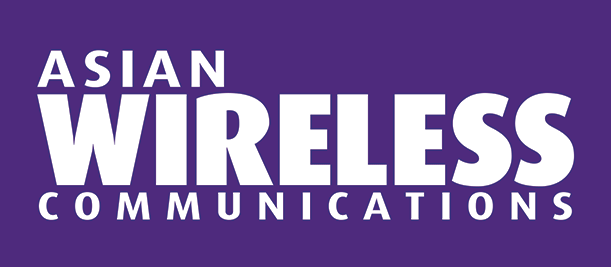04 April 2023

Martin Jarrold, vice president international
programme development, GVF
In my last Talking Satellite column for this publication I briefly referenced the satellite and space industry training offered by GVF and its training resource development partners. In this column I offer some additional perspectives and analysis on the increasing importance of training for a high-growth, high investment, sector in constant need of a reliable supply of human talent.
GVF technical training
GVF Training – a partnership of GVF and SatProf – has a near two decades long history. In serving the technical training needs of some 27,000-plus students to date it is recognised as the established global standard for satellite communications skills training and certifications. The GVF Training portfolio is based on realistic, online, interactive simulations of key skills, covering operation, installation and maintenance of VSAT, marine, and mobile/SNG satellite terminals, in addition to general and specialised satcom theory. The training programme was launched with the objective of building a global force of qualified VSAT installation technicians available in local areas to support expansion of VSAT networks and is additionally focused on imparting interference prevention skills, thereby contributing to combatting unintentional satellite interference.
The GVF training and certification programme has a representative based in India. Riaz Lamak – president of Mahdi Bagh Computers Private Limited, a satcom ground service company based in Pune – is international programme lead at GVF responsible for network validation-benchmarking, onsite capacity building, and humanitarian assistance and disaster response (HADR) communication initiatives. Lamak leverages GVF training resources to contribute to facilitation of performance quality assurance of satellite-based communication solutions.
A sample of the available courses is listed at https://gvftraining.org
GVF500 Introduction to
Satellite Communications
GVF505 RF and DC Theory for Satellite Systems
GVF506 Theory of Satellite TV Systems
GVF510 Ed2 Core Skills for VSAT Professionals
GVF520 Satcom Fundamentals
GVF521 Practical Technique for VSAT Professionals
GVF522 Spectrum Analyser Theory
GVF530 Core Skills for Mobile Satellite Terminal Operators
GVF531 Access Procedure Skills
GVF532 Core Up-linking Skills
SBQ
The latest training initiative from GVF and SatProf, working with partner organisation Space & Satellite Professionals International (SSPI), is the SBQ Certification, the product of their combined 80-years of experience in space and satellite. Development of the SBQ (Space Business Qualified) Certification arose from the partners’ recognition that the satellite industry is undergoing a uniquely fast ramp-up in human resource recruitment, fuelled by rapid innovation which is in turn powered by high levels of investment, rising pressure on available RF spectrum and the falling cost of access to space. The requirements of accelerated growth in the industry’s employment needs, and changes in employment patterns, are the challenges that the Space Business Qualified Certification programme has been designed to meet.
Online and self-paced, SBQ enables students to master the fundamentals of the business of space, filling a critical gap in online training for people in the space and satellite industry, many of whom are new to the industry or looking to deepen their knowledge to increase their productivity and advance their career. Students successfully completing all five SBQ Fundamentals courses – Fundamentals of Orbits & Getting into Space (SBQ401), Spacecraft Fundamentals (SBQ402), Space Communications Fundamentals (SBQ403), Space Business - Markets (SBQ404), and Space Business - Finance, Legal & Regulatory (SBQ405) – and a comprehensive exam will receive an SBQ Fundamentals Certification, valid for three years and renewable.
The course series provides a broad introduction to all business aspects of key space industry sectors, including launch, spacecraft, communications, broadcast, earth observation, navigation, and exploration. This content is on the concept and business level rather than depending on in-depth knowledge of mathematics, physics or engineering, because the aim is to equip students for success in the business of space and satellite.
Traditionally, requisite skills and knowledge of the industry are acquired via on-the-job experience and/or in graduate programmes. Whilst still of value, these routes are slow and costly, whereas SBQ saves time and money with teaching through interactive tutorials, videos, illustrations, and testing to validate understanding and reinforce learning, increasing the effectiveness of people working in every discipline, and enhancing their ability to secure promotion. SBQ offers a 360-degree view of the space and satellite industry and the wide range of activities needed to successfully operate in a space-based business:
- People entering the industry will quickly gain a comprehensive understanding to accelerate their success, whether in finding a job or taking on new assignments.
- Long-time employees moving into new fields will fill gaps in their knowledge and be better able to apply experience to challenges in greater responsibilities.
- Employers will more effectively onboard new personnel and improve employee retention.
- Students specialising in a particular engineering, science, legal or regulatory disciplines will gain a broader grasp of the industry.
Satellite is a complex business at the intersection of technology, communications, surveillance, government, and commercial markets and SBQ puts it all into perspective:
- For engineering and technical staff, SBQ prepares them for transition to sales engineering or management positions.
- For people in sales, marketing, and business development, SBQ gives new staff an understanding of industry capabilities, regulatory constraints and emerging opportunities.
- For finance, insurance, and legal staff, SBQ offers context on business models, customer needs, technologies, and regulatory matters.
- For employees in procurement, logistics and regulatory compliance, SBQ provides the background needed to turn an engineer’s request for purchase of a particular component into a disciplined procurement process.
- For staff on the management track, SBQ provides a view of the industry that enhances their ability to evaluate opportunities, identify potential partnerships, determine strategy, and execute plans.
- For new graduates, SBQ is a convenient, low-cost programme – and a valuable credential – that eases entry into the space and satellite industry.






